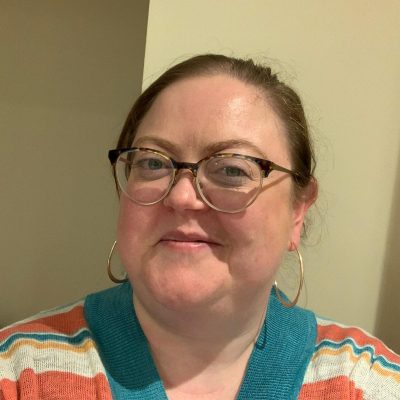The International Day for the Eradication of Poverty (17 October) is a vital opportunity to listen to, understand, and acknowledge the immense struggles many people face. It’s a day to recognise that those living in poverty are often the first to fight against it, yet their voices are rarely heard. For me, I feel a deep gratitude, and a powerful desire to share how, even when things seem impossible, hope and transformation are within reach – especially with God walking alongside you.
My journey into debt began unremarkably, after I graduated from university and into the 2008 financial crisis. Student loans, an overdraft, a credit card – they felt like rites of passage at first. But a string of insecure jobs, unexpected periods of ill-health, and a draining commute slowly began to unravel my carefully constructed financial world. The bank, seeing my reliance on my interest-free overdraft, started to reduce it, turning a manageable facility into a massive debt with crippling interest. When my income plummeted after I had surgery, and I could no longer even meet the minimum payments, the dreaded red letters began to arrive.
At the time, I had no idea I had ADHD and autism. Looking back, it all makes painful sense now. I’d often ‘throw money at problems’ or spend impulsively, driven by a desperate attempt to fix something quickly. The constant financial stress only fed my anxiety and depression, creating a vicious cycle. The shame was overwhelming; the debt felt like a physical weight, crushing me. I got to a point where I just stopped opening my post because I couldn’t bear to see those red letters anymore.
Everything changed the day I finally broke down and told my parents, “I can’t do this anymore.” Seeing my desperation, my dad suggested I contact Christians Against Poverty (CAP). From that very first phone call to CAP, and then meeting my wonderful debt coach, Liz, a glimmer of hope appeared. It was like a lifeline in a stormy sea. CAP didn’t just tell me what to do; they walked alongside me. They set up a manageable repayment plan, showed me how to budget – even including a little money for fun, which felt revolutionary – and gently, patiently, took the fear out of finances. Every payment, no matter how small, felt like a step towards freedom, not a punishment.
"It was like a lifeline in a stormy sea. CAP didn't just tell me what to do; they walked alongside me."
For someone with ADHD and autism, whose voice about my struggles had been so silent up until then, I felt a fundamental shift happen.
Around this time I also received my diagnosis of ADHD. My psychologist explained that debt is surprisingly common for women with ADHD. Suddenly, the difficulty with organisation, the overwhelming feeling of complex paperwork – it all clicked. I understood now that one of the reasons I had struggled with money management was directly linked to the behaviour my ADHD brings. This self-understanding gave me a voice to talk about my struggles, and became a powerful tool, enabling me to manage my money much more effectively.
I’m currently working with CAP’s team on their new report, which highlights this very challenge – how for people like me, with neurodivergence, everyday tasks like dealing with complex forms or confusing debt letters can make financial stability incredibly difficult. It’s not just about spending choices; the whole system can feel like it’s set against you. I’m supporting CAP’s goal to strengthen their face-to-face debt help services, which is so vital for neurodivergent people who need face-to-face support to help explain complex issues simply.
I’ll never forget the phone call at work telling me I was officially debt-free. I sat in my car during my lunch break, overwhelmed with relief and joy, and just cried. I’ve framed the letter they sent me, and it hangs on my wall as a constant reminder of God’s faithfulness and the incredible support I received.
Today, I budget confidently, save a little each month, and even plan for the spending patterns my ADHD can bring. CAP didn’t just help me clear my debt – they gave me the skills, the confidence and the vital self-understanding to stay financially independent.
"CAP didn't just help me clear my debt – they gave me the skills, the confidence and the vital self-understanding to stay financially independent."
For those feeling the weight of financial pressures, especially with the added complexity of neurodiversity, my story is a message of hope that freedom from debt is achievable. Working with CAP to deliver their debt service, my local church was truly salvational.
CAP’s debt coaches and money courses provide a lifeline for anyone wanting to turn their finances around, and, like me, discover a path to hope and a new, abundant chapter in their lives.
To find out more about the free services CAP offers and how you can support their vital work, especially for those facing neurodivergent challenges, visit: capuk.org/struggle.

From debt to destiny: my journey from financial blues to money coach
CAP money coach Sue Johnson shares how Blue Monday can be an opportunity for hope instead of anxiety


